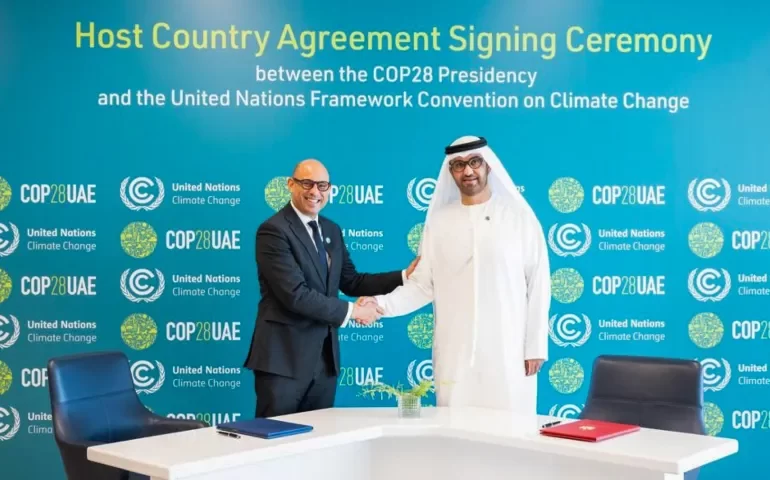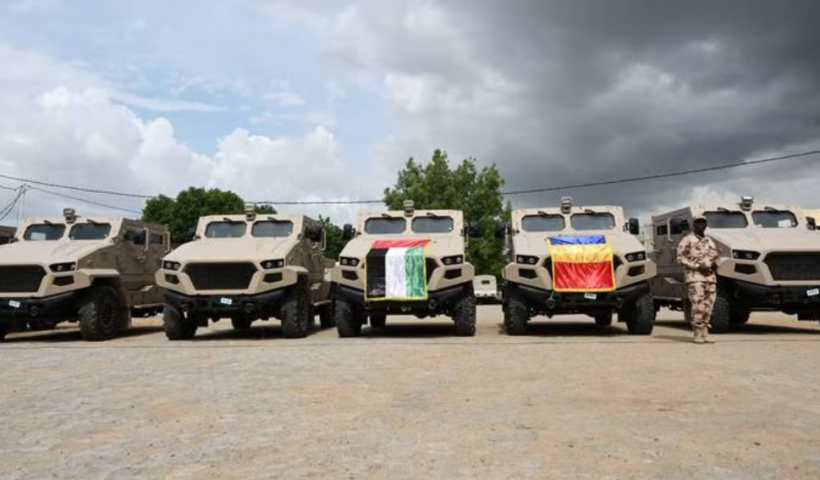The United Arab Emirates has said that it will permit environmentalists to freely assemble and “make their voices heard” at this year’s UN climate conference.
In an agreement with the United Nations Framework Convention on Climate Change (UNFCCC) that was released on Tuesday, the announcement was made.
According to the statement, “there will be space accessible to climate activists to come together peacefully and make their voices heard in accordance with UNFCCC guidelines and respect to international standards and principles.”
In the oil-rich Gulf nation, which will host COP28 in the commercial center of Dubai from November to December, official approval is needed for rallies, although the government virtually forbids protests they deem disruptive.
The bilateral agreement that establishes the framework for planning and hosting the climate talks was signed by UNFCCC Executive Director Simon Stiell and COP28 President Sultan al-Jaber after the issuance of the joint statement.
We are steadfastly dedicated to making sure that UN values are preserved at COPs in order to advance climate action and ambition, Stiell said.
The views of youth, women, local communities, people of Indigenous descent, and those who are most affected by climate change will be acknowledged and reflected in this COP process, we are also making all possible efforts to ensure.
A contentious decision
The UAE ranks among the top emitters of CO2 per person in the world and is a significant producer of oil.
Environmental organizations have criticized the decision to have it host COP28 because they believe that having an oil exporter participate could impede the progress being made in the fight over global warming.
Activists expressed outrage over the appointment of Al-Jaber, the CEO of the Abu Dhabi National Oil Co., to lead the negotiations and raised the concern of a conflict of interest.Al-Jaber has also come under fire for ignoring the need to phase out the usage of fossil fuels in favor of concentrating on initiatives to lower emissions.
Antonio Guterres, the secretary-general of the UN, issued a warning in June urging nations to begin phase-outs of coal, oil, and gas.
“Fossil fuel emissions are only one aspect of the issue. It’s fossil fuels, plain and simple,” Guterres told the media.
Human Rights Watch and other non-governmental organizations have also issued warnings that the Gulf state’s limits on free speech could prevent climate campaigners from actively participating.
The decision to hold the conference in the UAE was questioned in May by a number of human and environmental rights organizations, who expressed concern that “severe limitations enforced by the authorities in the UAE in recent years will impede the full meaningful involvement of journalists, activists, human rights opponents, civil society, youth groups, and indigenous peoples’ representatives at COP28.”
Most previous COPs have seen sizable protests, and during the most recent UN climate negotiations in Egypt, where governments frequently crack down on protesters and arrest activists, only small marches were permitted.
In Egypt, authorized protests could only take place in a designated area that was heavily guarded and only during particular hours.



